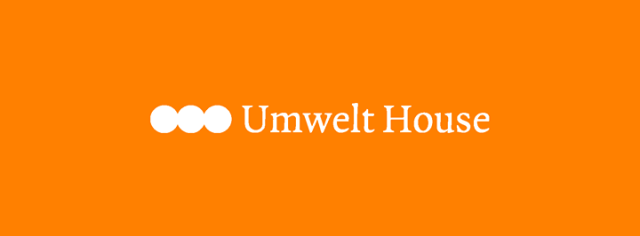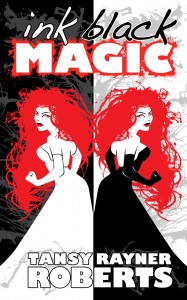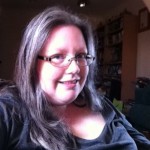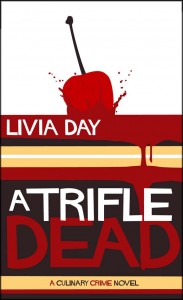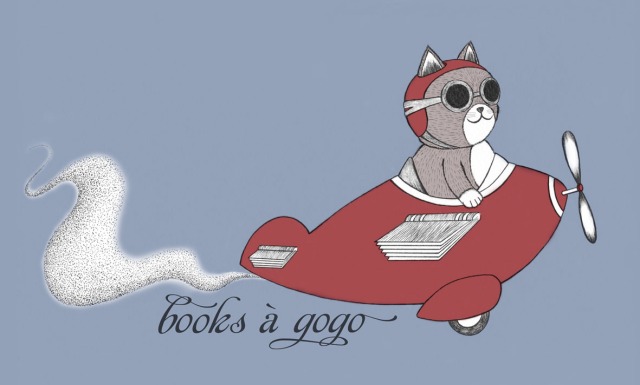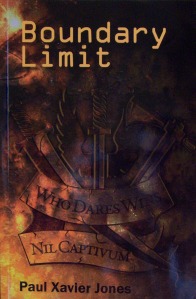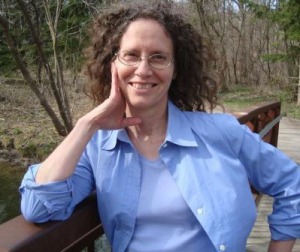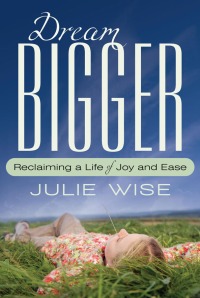Update: As of 1 May, 2015, there is a note on the Umwelt House homepage that they are currently closed for submissions. I am sure this will change so I am keeping this article up as general information about their requirements.
New speculative fiction publisher, Umwelt House, recently announced a call out for short novels and novellas. Craig Hitchings, Umwelt House’s founder and editor, kindly agreed to answer some questions about what they’re looking for.
Craig, can you tell me which authors, books or speculative fiction subgenres excite you?
I tend to go through phases of getting really into someone, becoming completely obsessed and reading their books one after the other. The first author that comes to mind is China Miéville, whose novel Perdido Street Station blew me away a few years ago. I’ve since read all his books – the man is an ideas factory. Douglas Adam’s The Hitchhickers Guide to the Galaxy has a similar effect on me, and I ripped through the rest of the series in a matter of weeks. The book I most loved as a teenager was George Orwell’s Nineteen Eighty-Four.
I recently read Neal Stephenson’s Snow Crash and Ernest Cline’s Ready Player One, both of which kicked my ass. The Inverted World by Christopher Priest was another brilliantly executed idea. Nancy Kress’s novella Beggars in Spain was similarly excellent throughout.
Of course, I find myself returning to the classic novels by Philip K Dick, Margaret Atwood, Ursula K Le Guin, Stanislaw Lem, J R R Tolkien, John W Campbell, Isaac Asimov and Arthur C Clarke. The latter’s The City and the Stars is truly amazing – I’ve re-read it a few times now.
I’m also massively influenced by TV series, which I think have eclipsed film as the dominant visual form in recent years. I’ve been obsessed with Channel 4’s Utopia – particularly by the way it’s shot, the amazing music and the fantastic characters who add a human element to what is a very cold, dark conspiracy story. I loved Lost when that was on – and still do. Of course, credit must be given to Joss Whedon’s Firefly. The Game of Thrones adaptation is well done and Charlie Brooker’s Black Mirror series contains some brilliant episodes. There are so many to mention. A French show called Les Revenants (The Returned in English) is also well worth a watch – the music by Mogwai is great.
What do you look for in a manuscript?
I look for manuscripts that offer something a little different – whether it’s a mindblowing idea, a great character piece or something that’s just a damn good yarn. There’s a lot of saturation in the science fiction and fantasy genres, so I prefer things that blend elements from all genres, whether that’s sf, fantasy, magical realism, utopian/dystopian, horror and so on. I think the most interesting stuff crosses the borders. For example, two short pieces that really stick out for me are George Saunders’ Pastoralia and Escape from Spiderhead. Both shorts are hard to define in traditional publishing terms, but they are truly engaging, well-written stories with fully-formed worlds and rules that take the reader out of themselves. The best thing is that Saunders achieves this with an incredible economy of words. It’s this type of writer that I’m most interested in – someone who can describe amazing things within a very small space. I love clear language.
Take a non-speculative fiction author such as Charles Bukowski as an example. He doesn’t fluff his language. Everything is precise, pared back, powerful. If something doesn’t need explanation, he doesn’t say it. If a character smokes a cigarette, he says ‘X smoked a cigarette’. The reader can fill in the rest.
Do you have any suggestions for writers wanting to be published with Umwelt House?
First and foremost, be original, or at least present a classic idea in an original way. Write in your own style, without thinking about markets, or length, or anything else that puts restrictions on the work. It’s good to get shorter pieces into a few of the magazines, or to write a blog or have a decent social media following, but they’re not necessarily prerequisites. Above all else, read the submission guidelines carefully and stick to them, otherwise it’s just a waste of everyone’s time. A clearly formatted manuscript and a good synopsis also help with initial impressions.
Have you signed any authors yet? Anyone you’d care to mention?
I’m keeping quiet on that at the moment. I will announce any signings as soon I can. We’ve only been open for submissions for a few months. I have had a couple of interesting pieces that I’m considering. I hope to receive many more manuscripts over the coming months, with the first publications scheduled for 2015. I will always contact an author who perhaps has a nice idea but needs to put more work in to make it great.
How will Umwelt House’s titles be promoted?
I think, with the way the publishing industry is going, everything will be done online. First of all, the book covers will feature one colour that will be reflected across the website and our social media channels. When the colour changes, you’ll know there’s another Umwelt House book to read. I also aim to create interesting video content in collaboration with some of my friends working in London’s film industry.
Of course, it would be excellent to get reviews in national media (I currently work for one of the major newspapers in London), but it’s hard breaking through if you’re not one of the big publishers. So, in the initial stages, I hope that smaller publications and bloggers will take to the work, feature the authors in round-up pieces and interview them about their inspirations, aspirations and future plans. We’ll also be entering the books in the shorter categories offered by the Hugos, Nebulas and the other main awards.
The main selling point is that all the books will be under 70,000 words – a novella or short novel. They can be read in a few hours. They’ll take you on a journey in much the same way a novel would, without you having to set aside a couple of weeks/months to read them.
Do you offer authors advances or royalties?
At this stage, we are a small company, so we can’t offer advances. What money we have will need to go on printing, distribution, marketing and other costs. However, of course there will be royalties. I still need to finalise the exact amounts, but I’m hoping to offer as even a split between publisher and author as possible. But fear not, the percentages will be far more in favour of the author than what is currently offered by the corporate publishers and the wider industry. As far as I’m concerned, I’m not in it for the money. I want Umwelt House to make enough off each title in order to cover the publishing costs of another book – to get another author in front of the reading public. If I can keep this going long term, then I’ll be very happy indeed. Anything else is a bonus.
How many titles do you plan on publishing in 2015?
I’m hoping to start off with three or four throughout the first year. But I want to keep the quality extremely high. I’m hoping that if you like one Umwelt House book, then there’s a high chance you’ll like the other publications. That’s the plan, anyway.
How will readers be able to buy Umwelt House books? Which e-bookstores, ebook formats? How will they be priced?
Initially, they will be able to get them through the website, and through Amazon (both print and digital), iBooks, Barnes & Noble and other online stores. Once this has been set up, I hope to get the books out in shops in London, following up with distribution deals for the UK. After that, it’s about making sure the books get to America, Canada, Australia, New Zealand and other English-speaking countries. It’s early days at the moment, of course, but I also hope to get the works translated into Spanish, French and German at the very least. I’ll see how it goes.
In terms of price, I think we’ll aim for £5-£6 – the price of a couple of drinks (or one if you’re in London).
Are you looking for slush pile readers or interns at the moment?
I read every manuscript myself at this stage. And I try to get to each one within three months of it being submitted. I hope to keep this practice going for as long as I can, though I understand that it may become impossible later on down the line. Again, I’ll have to see.
Thank you, Craig Hitchings!
Summary
Umwelt House is seeking speculative fiction short novels and novellas in the 15,000-70,000 word range. Please submit your DOC, DOCX or PDF file in 12-point font, double line spacing using the links below.
Links
Umwelt House
For more information on submitting your manuscript, click here.
To submit your manuscript, click here.
Connect with Umwelt House and Craig on Twitter!
@umwelthouse
@craighitchings
